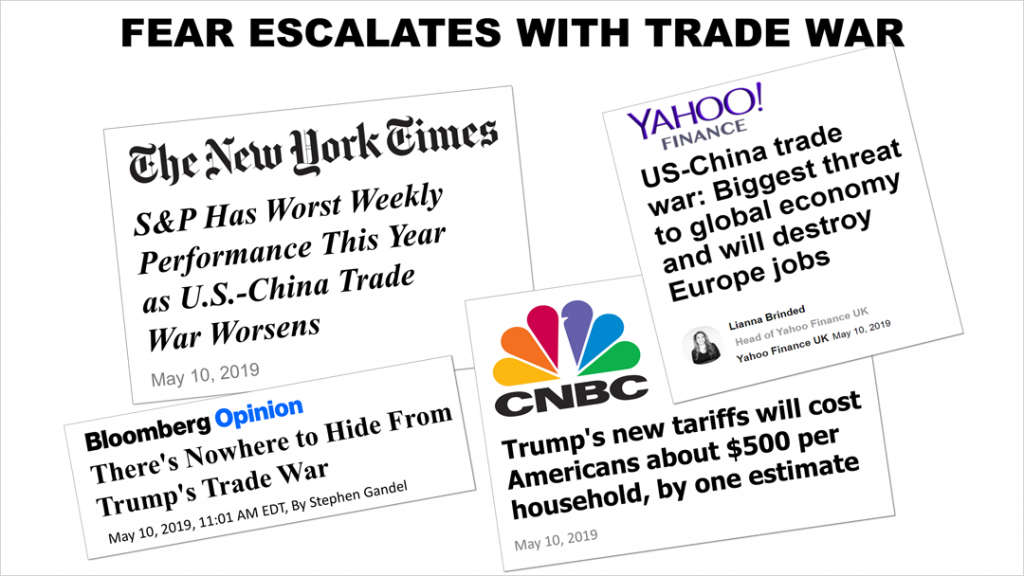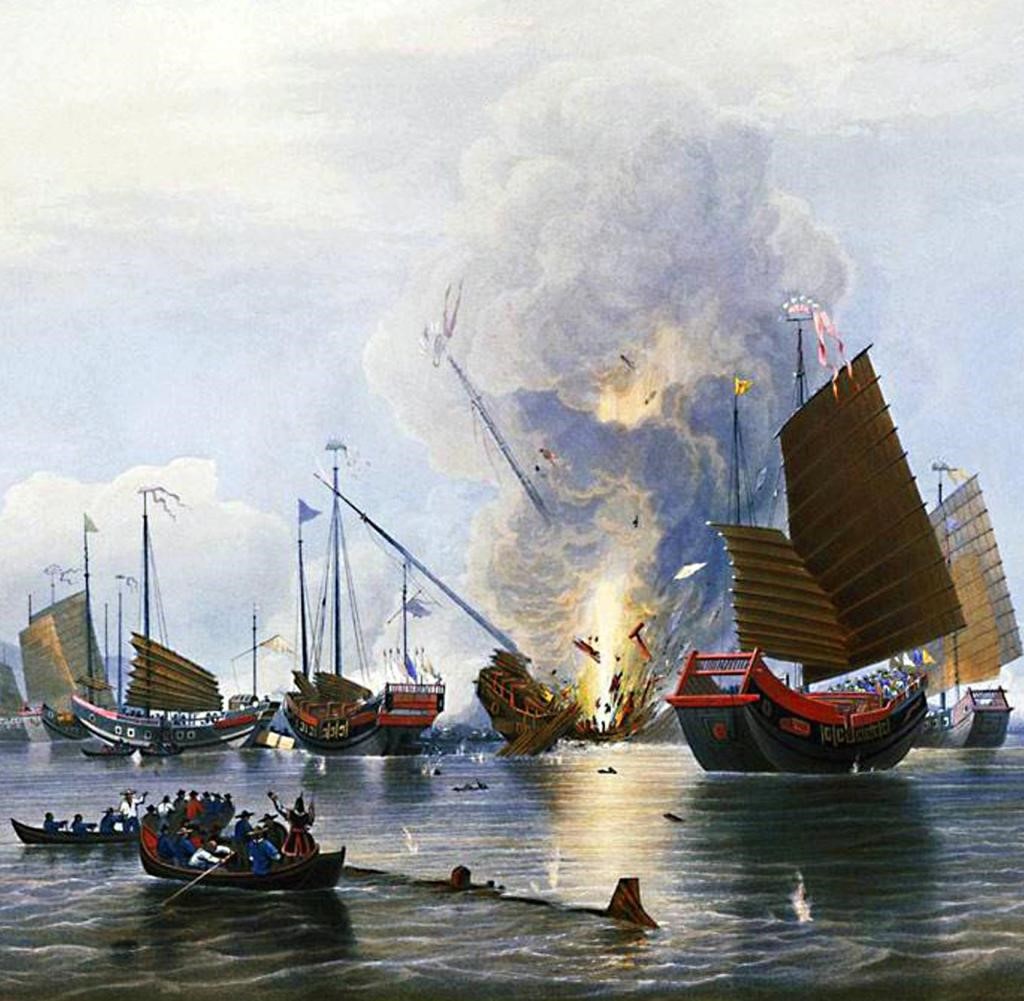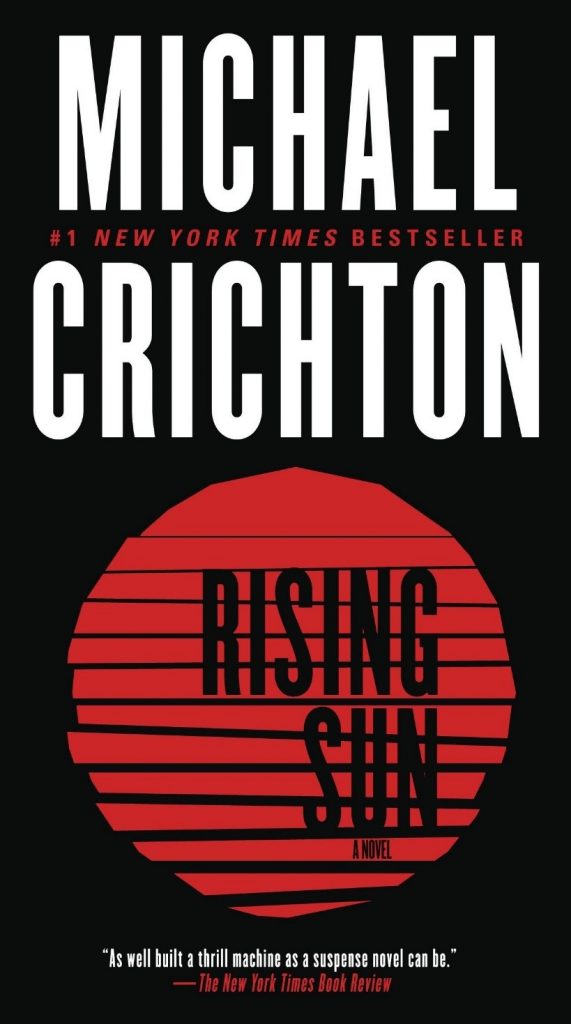The great military strategist Carl von Clausewitz once said, ‘War is nothing but a duel on an extensive scale… an act of violence intended to compel our opponent to fulfil our will.’
Von Clausewitz was talking about a war being waged through bullets and bombs. But he could just as easily have been talking about a war being waged through economics.
Right now, it’s impossible to miss the headlines:

Source: Heling Associates
The escalating trade war between the United States and China has everyone feeling jittery.
On one side, we have Donald Trump punishing China for perceived offences such as the trade deficit, theft of intellectual property, and currency manipulation.
On the other side, we have Xi Jinping, vowing to defend his country’s national pride against what he says is Western bullying that’s akin to ‘putting a knife to its throat’.
The arguments in favour of this trade war are heated — and the arguments against it are just as passionate.
Who’s right in this dispute? Who’s wrong? And what’s really at stake here?
To get understand why this is happening, it can be helpful to look back on human history and examine previous trade wars to get a sense the motives and the methods involved.
The first major trade war
China is certainly no stranger to being on the receiving end of a trade war. In fact, the first economic conflict between East and West happened for reasons that have eerie parallels with what we’re seeing today.
It unfolded like this:
- In the late 18th century, the British Empire loved tea.
- China was the world’s biggest producer of tea.
- A trade deal was established: British silver in return for Chinese tea.
On the surface of it, this felt like a clean and simple deal. A willing buyer. A willing seller.
Problem was, over time, the British Treasury ran low on silver, even as the Chinese government became comparatively wealthy by hoarding silver.
Drug cocktail
This trade imbalance gave rise to bitter emotions. And in an attempt to replenish their coffers, the British decided to establish a new agreement.
It went like this:
- The opium drug would be imported into China.
- Silver would flow back to Britain.
- The trade deficit would be resolved.
Unfortunately, this plan soon hit a snag. The Chinese government became alarmed at the large numbers of its citizens becoming addicted to opium. And in the name of morality, they halted British shipments, seizing and destroying the drug.
Enraged, the British sent warships to reopen Chinese ports.
The Opium Wars erupted.

Source: Welt
China lost this conflict. Badly. It was not only forced to yield to British trade demands, but also surrender control of Hong Kong to the British.
This was a painful chapter in history. It continues to resonate in the Chinese psyche, fuelling nationalist sentiment. It’s something that Xi Jinping and the Communist Party exploits politically and gains mileage from.
If you’ve ever wondered why China has proven to be so belligerent at the negotiation table, this is the reason why.
The trade war with Japan
The 1980s provides us with yet another example of an economic knife fight between East and West. This time, the opponent was Japan, which was perceived to be a growing menace to American industry.
No less than a young Donald Trump (perhaps foreshadowing his actions today) slammed The Land of the Rising Sun on a public talk show. He said, ‘They have systematically sucked the blood out of America. They have got away with murder…We have to tax the hell out of them.’
Brash? Maybe. But it isn’t hard to see why Trump’s sentiments resonated among working-class folks.
Japan had a formidable strategy — a low yen, subsidies for manufacturing, and barriers designed to keep foreign goods out.
Here’s an example of how it played out:
- In 1981, close to two million Japanese cars had been sold in the United States.
- Meanwhile, just over 4000 American cars had been sold in Japan.
Not exactly healthy competition.

Source: Amazon
Foreign dominance
Naturally enough, this trade imbalance created a sense of fear. Was America about to lose? Was unemployment going to skyrocket? Was Japan on the brink of ascending as the world’s leading industrial power?
This ominous feeling found its way into popular culture. It spawned stories like Michael Crichton’s Rising Sun, where Americans would be forced to kowtow to their new Japanese overlords. A chilling image, no doubt.
Of course, we can shrug and shake our heads now because we know that history turned out quite differently. President Ronald Reagan fought back — using a combination of hard-hitting tariffs and steady political pressure to force Japan to submit.
Here’s how it happened:
- The exchange rate between the US dollar and Japanese yen was revalued to be more competitive.
- Japanese exports went down.
- Japanese imports went up.
The trade deficit eased, and the aftermath was surprising. In early 1992, Japan’s bubble economy suddenly burst. This led to a long period of stagflation that the country is still struggling to recover from.
Unwittingly, America had scored a knockout blow against a feared competitor.
Obviously, this episode has not been lost on Donald Trump. You could say that his present approach to China has been informed almost entirely by what he witnessed during the US-Japan trade dispute.
For good or for bad, Trump fully intends to push for a similar result.
The endgame?
William Faulkner once said, ‘The past is never dead. It’s not even past.’
There’s a great deal of truth there. For Donald Trump and Xi Jinping — both clinging on to past victories or past traumas — trade wars are merely an extension of what we’ve seen happen before.
Sooner or later, a compromise has to happen, but not before a few more blows are exchanged. Remember: national pride is at stake.
Regards,
John Ling
Analyst, Wealth Morning
PS: Looking for great stock choices that could weather the storm during this trade war? You should definitely check out our Lifetime Wealth Investor programme. We’ll show you, step-by-step, how you can build a robust portfolio that will benefit you in the long-run.





John is the Chief Investment Officer at Wealth Morning. His responsibilities include trading, client service, and compliance. He is an experienced investor and portfolio manager, trading both on his own account and assisting with high net-worth clients. In addition to contributing financial and geopolitical articles to this site, John is a bestselling author in his own right. His international thrillers have appeared on the USA Today and Amazon bestseller lists.